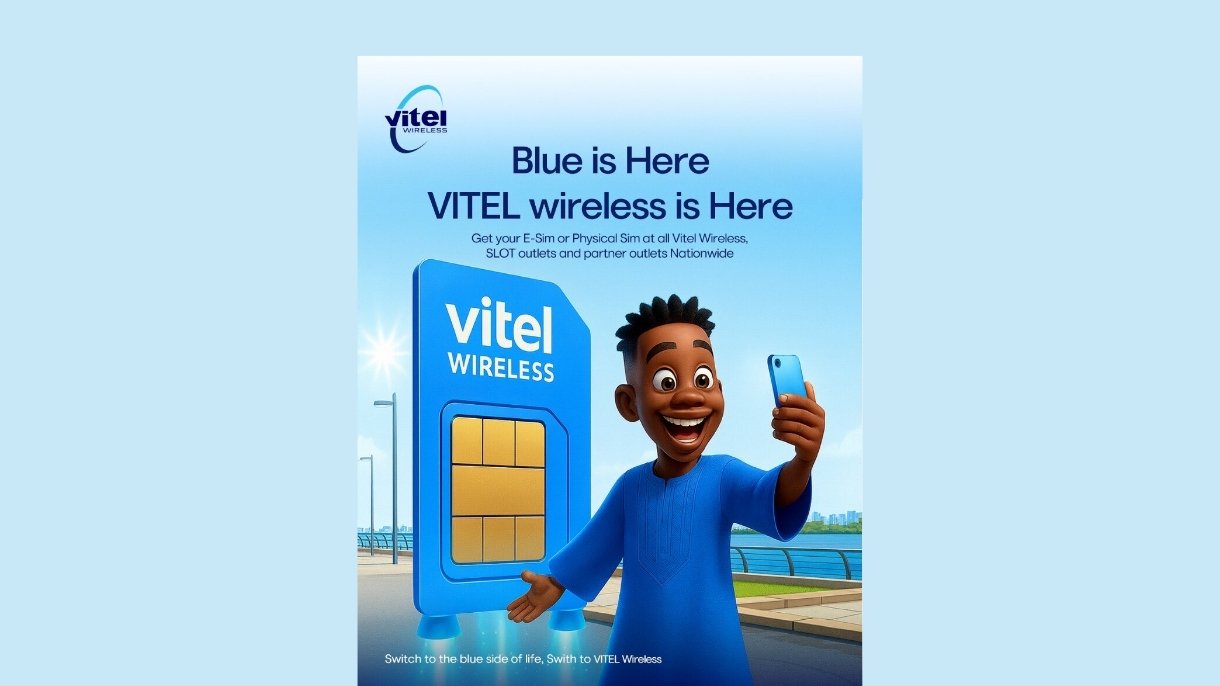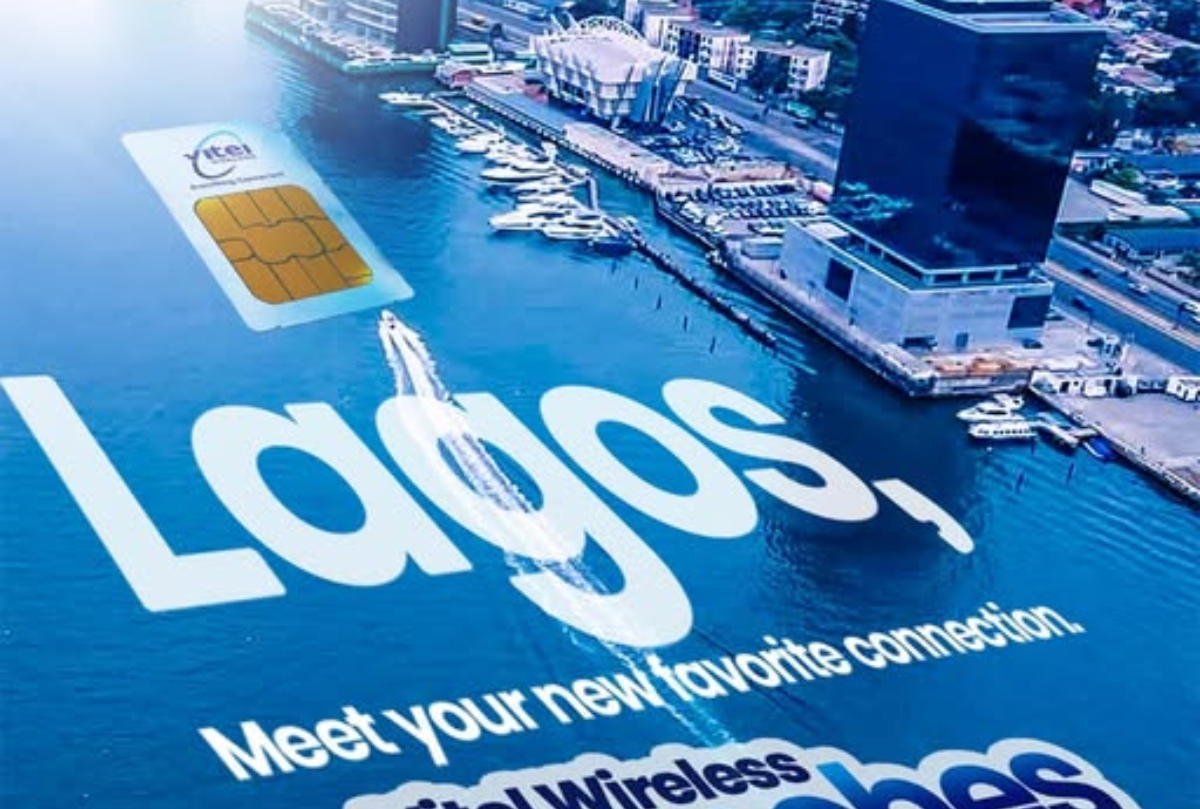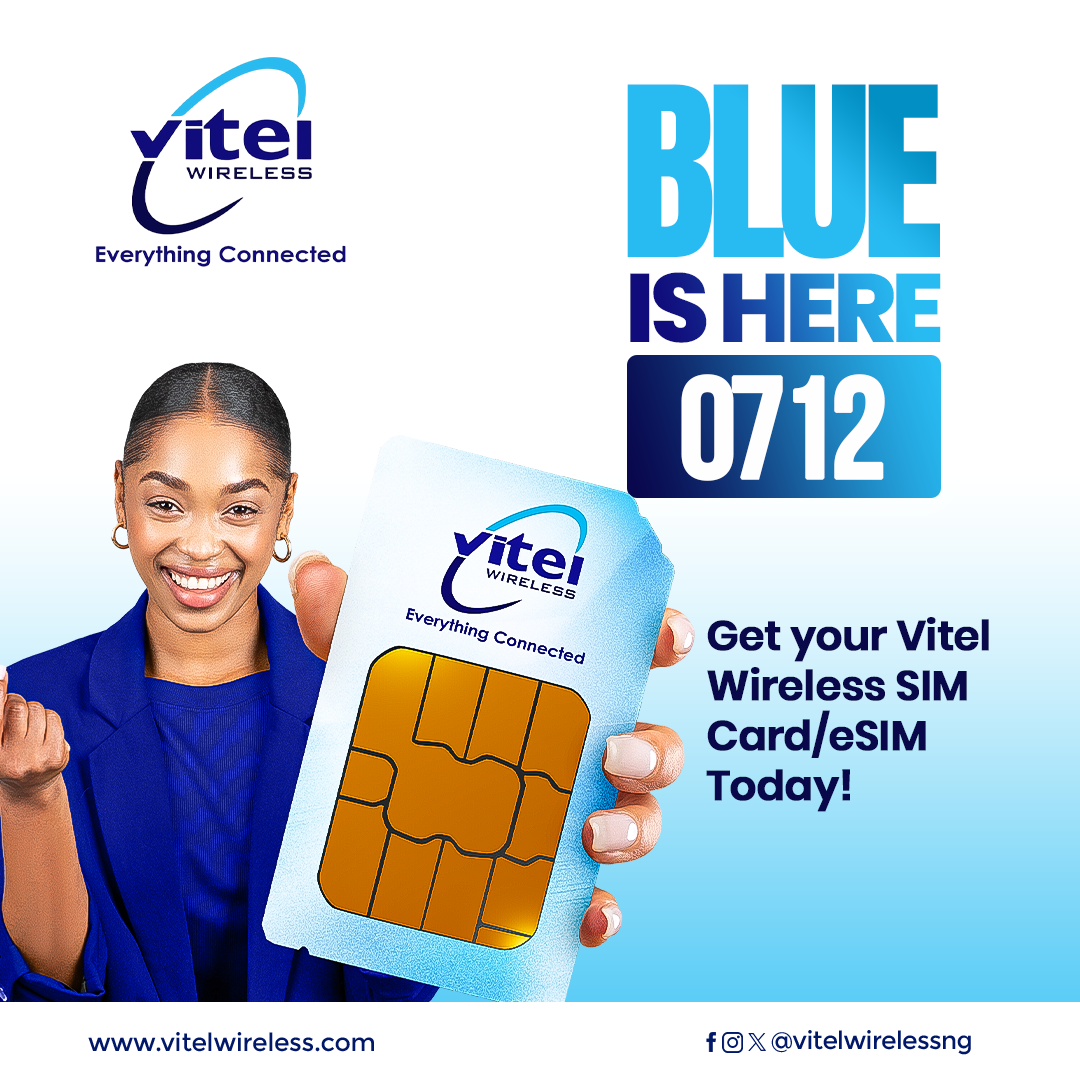Vitel Wireless has officially become Nigeria’s first full Mobile Virtual Network Operator (MVNO), launching nationwide with its exclusive 0712 number series. Licensed by the Nigerian Communications Commission (NCC), Vitel aims to be an affordable, tech-driven alternative to the country’s traditional mobile operators.

What is Vitel Wireless?
Vitel Wireless is a “full MVNO,” which means it doesn’t build its own physical towers. Instead, it leases network capacity (like 4G LTE) from established operators like MTN, Airtel, and Glo. However, it manages everything else itself, including its own SIM cards, billing, customer service, and value-added features.
📡Full Operator
Vitel operates with its own 0712 number series, SIM management, and billing systems, just like a traditional carrier.
🤝Nationwide Coverage
By leasing capacity from all major MNOs, Vitel can offer service in all 36 states plus the FCT, with an initial focus on major cities.
✨Modern Services
The company will offer 4G LTE data, voice calls, SMS, and modern features like eSIM support and IoT-driven services.

Services, Pricing, and Data Plans
Vitel Wireless will support both physical SIM cards and modern eSIMs, allowing for dual-SIM provisioning. As mandated by the NCC, all SIMs will require a valid National Identification Number (NIN) for activation. The company will also support number portability, so you can switch to the 0712 network while keeping your existing phone number.
While official tariffs are not yet public, marketing teasers hinted at highly competitive data pricing, potentially around ₦100 for 110MB. Analysts expect Vitel to launch with disruptive pricing to challenge the cheapest data plans currently available and lure customers away from the established networks.

Market Impact: Why Vitel Matters
Nigeria’s telecom market, with over 220 million subscribers, is dominated by just four major operators. Vitel’s arrival—as one of the first of 46 MVNOs licensed by the NCC to launch commercially—signals a new phase of competition.
This new competition could be a major win for consumers. Vitel’s asset-light model (no towers to build) allows it to focus on customer experience and aggressive pricing. This could put pressure on the established telecom operators to reduce their own prices and reconsider if their unlimited data plans offer real value. For Nigerians, Vitel’s entry represents fresh competition, the promise of lower costs, and new, innovative service models.




